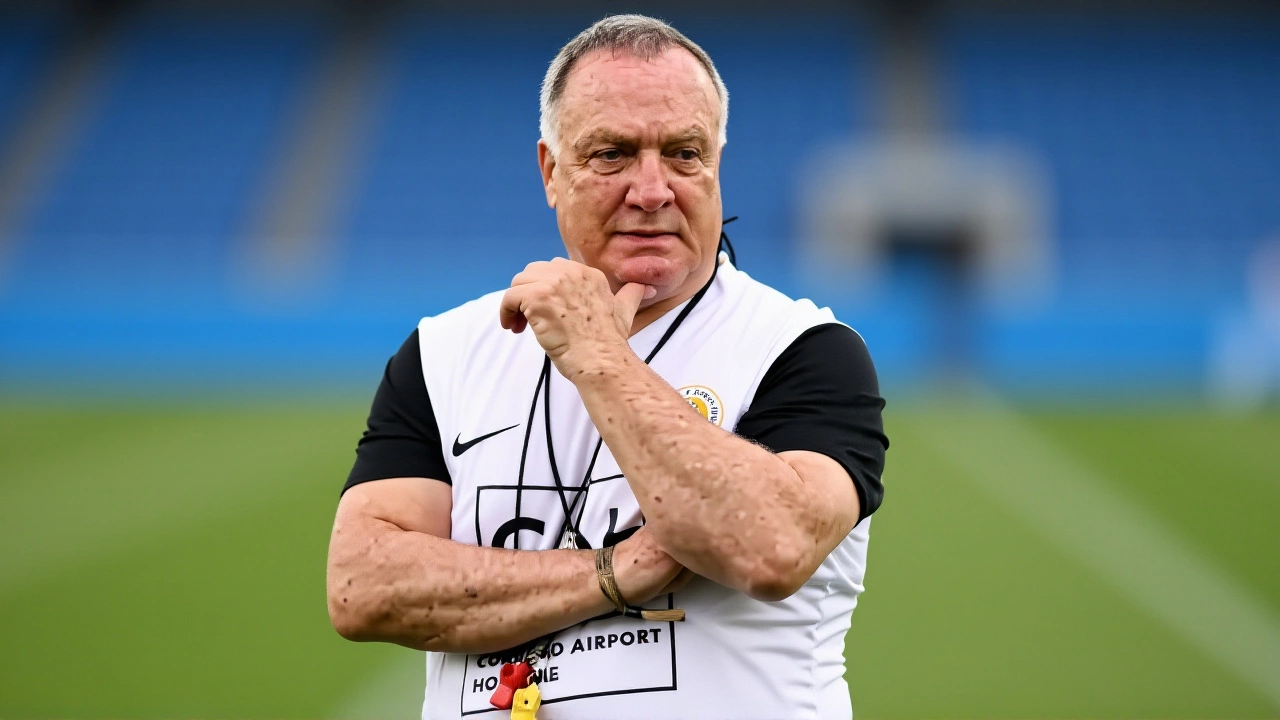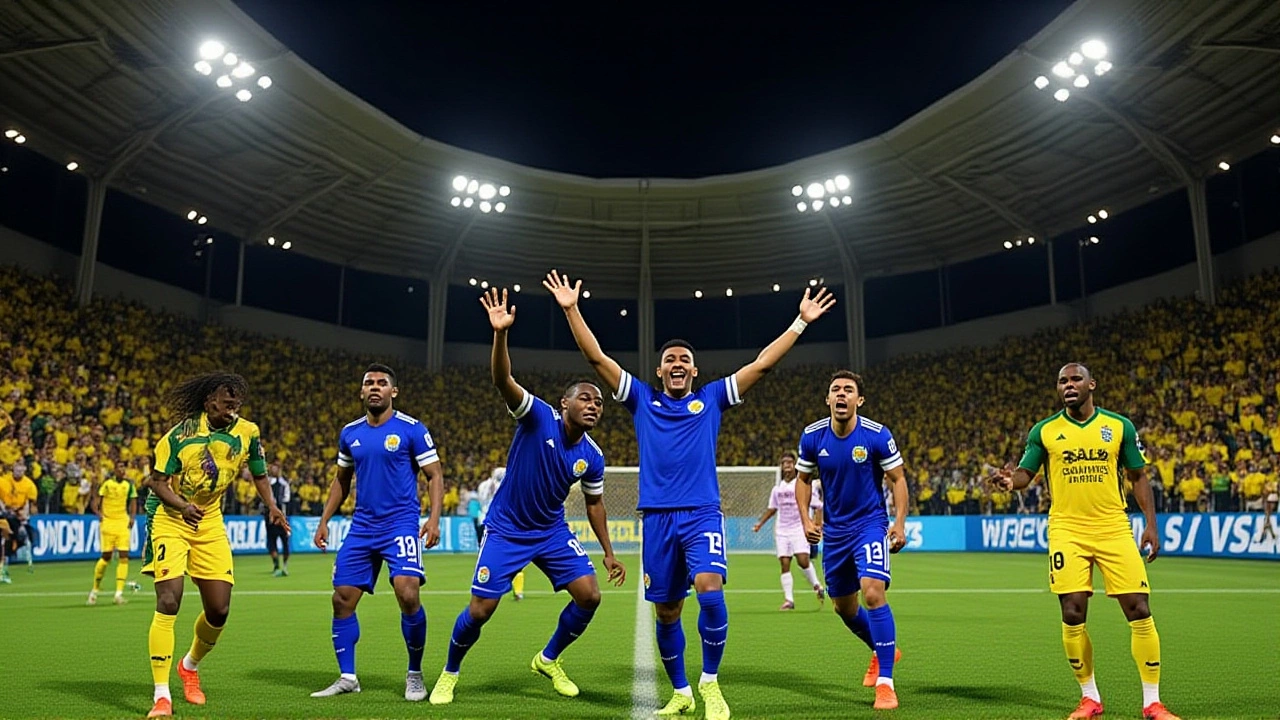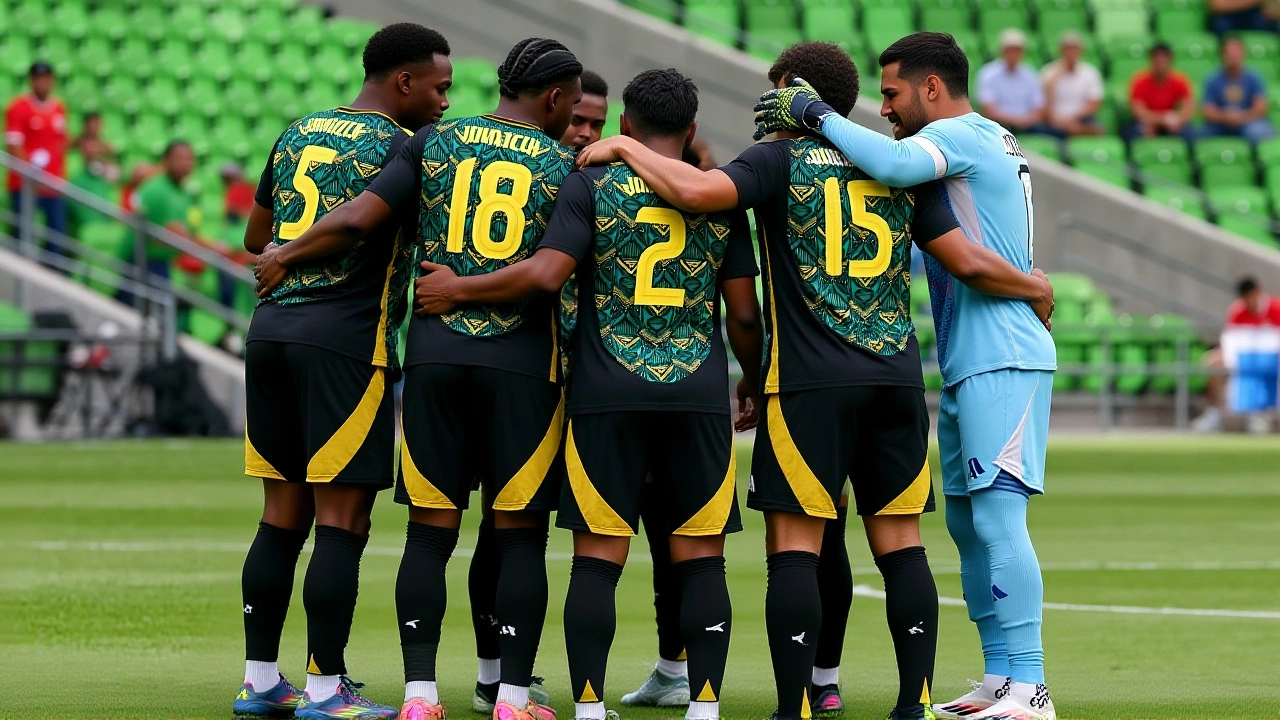It ended in silence. Not the kind of silence that follows a goal, but the heavy, breathless quiet of dreams deferred. On November 18, 2025, at the National Stadium in Kingston, Jamaica, the Steve McClaren-led Reggae Boyz fought for survival — and came up short. A 0-0 draw against Curaçao (The Blue Wave) meant Jamaica missed automatic qualification for the 2026 FIFA Men's World Cup. For Curaçao, it was a miracle in motion — one point from a population smaller than many U.S. high schools could send them to football’s biggest stage.
The Stakes That Shook the Caribbean
Before kickoff, the tension was thick enough to cut. Jamaica needed a win. Nothing less. With 11 points from six games, they sat just behind Curaçao, who held 12 points (3 wins, 3 draws, 0 losses) and a +10 goal difference. A draw? That was all Curaçao needed. And with a population of just 160,000, they stood on the edge of becoming the smallest nation ever to qualify for a World Cup. No Caribbean island had ever done it. Not Trinidad and Tobago. Not Haiti. Not even Jamaica, in their 1998 miracle run.“This is one of the biggest matches in Jamaica’s football history,” Tallawah TV declared in their final pre-match broadcast. The words weren’t hype — they were prophecy. The stadium buzzed with dread and hope. Fans held candles. Children wore jerseys from the ’98 squad. The weight of decades pressed down.
How the Match Unfolded
Jamaica lined up with Blake in goal, Leigh and Pinnock anchoring the defense, and De Cordova-Reid leading the attack. Curaçao countered with Leandro Bacuna and Jeremy Antonisse — two players who’ve thrived in Europe’s lower leagues, now carrying a nation’s dreams.The first half was cagey. Jamaica pressed, but their passes were too heavy. Curaçao absorbed pressure and struck on counters. At 72’, De Cordova-Reid curled a free-kick just wide. At 89’, substitute Ian Fray had a header saved. The crowd roared — then fell silent again.
The defining moment came at 90'+10'. Jeremy Antonisse raced down the left, cut inside past two defenders, and fired. The ball soared over the crossbar, assisted by Bacuna. It was the last real chance. The final whistle blew at 90'+11'. No goal. No celebration. Just exhaustion.

The Aftermath: What This Means for Both Teams
For Jamaica, the draw meant they finished second in Group A with 11 points — one behind Curaçao. They’re now headed to the intercontinental playoff, where they’ll face a team from Asia or Oceania. It’s a lifeline, but a brutal one. The last time Jamaica reached a playoff, they lost to Peru in 2018. This time, they’re older, slower, and without the same momentum.For Curaçao? History is within reach. They’re now guaranteed to finish in the top four of CONCACAF’s six-team group. The third and fourth-place teams qualify for the World Cup — either directly or via playoff. Curaçao will need only one more point from their final match against Trinidad and Tobago to lock in fourth place. If they do, they’ll become the smallest nation ever to reach a World Cup — smaller than Iceland (340,000), smaller than Luxembourg (600,000), smaller than any nation that’s ever made it.
“We didn’t just play for points,” said Steve McClaren in his post-match presser. “We played for a legacy. We didn’t get the result, but the fight? That’s ours.” His voice cracked. He’s been coaching since the 1990s. He knows what this meant.
The Human Cost Behind the Scoreline
This wasn’t just a football match. It was a lifeline for a nation still recovering from Hurricane Melissa, which devastated Hanover Parish in August. The GoFundMe campaign promoted by HALFTIME TV during their live stream raised over $2.3 million in 72 hours — money that will rebuild homes, schools, and clinics. The match wasn’t just about World Cup dreams. It was about dignity. About hope.On YouTube, Dietrich Match Today hit 3,000 concurrent viewers — a record for Caribbean football. In Kingston, people watched in bars, in churches, in open-air markets. When the final whistle blew, no one cheered. No one booed. They just stared at the screen, holding each other.

What’s Next?
Jamaica’s fate now hinges on their playoff draw in March 2026. If they face a team like Australia or Uruguay, the odds are steep. But if they get a weaker opponent — say, New Zealand or Oman — they still have a shot. Meanwhile, Curaçao’s final group match against Trinidad and Tobago on November 20, 2025, will determine whether they become football’s ultimate underdog.One thing’s certain: this isn’t the end of Jamaica’s story. But it’s the end of an era. Steve McClaren’s tenure may be over. The Reggae Boyz need new blood. New ideas. And maybe, just maybe, a new kind of belief.
Frequently Asked Questions
Why didn’t Jamaica qualify automatically despite being so close?
Jamaica needed a win to finish first in their group and secure direct qualification. A draw gave them only 11 points, leaving them second behind Curaçao’s 12. Only the top three teams qualify automatically; fourth place enters a playoff. Jamaica’s +8 goal difference wasn’t enough to overtake Curaçao’s +10, so they’re now in the intercontinental playoff, where they’ll face an Asian or Oceanic team in March 2026.
How is Curaçao the smallest nation to ever qualify for the World Cup?
If Curaçao finishes fourth in their group and qualifies, they’ll be the smallest nation by population ever to reach a World Cup finals. With just 160,000 residents, they’d surpass Iceland (340,000) in 2018 and Luxembourg (600,000) in 1982. Their entire population is smaller than many English towns — making their potential qualification one of football’s greatest underdog stories.
What role did Steve McClaren play in Jamaica’s campaign?
McClaren, former Manchester United assistant and Derby County manager, took over the Reggae Boyz in 2024. He brought structure, discipline, and a European tactical approach. Under him, Jamaica went unbeaten in their last five group games — including a 2-1 win over Canada. But his reliance on aging stars like De Cordova-Reid and lack of depth in midfield proved costly in high-pressure moments. His future with the team remains uncertain after the draw.
How did Hurricane Melissa impact the match and Jamaica’s football program?
The hurricane damaged infrastructure in Hanover Parish, including the Lucea community where many players grew up. The GoFundMe campaign tied to the match raised over $2.3 million, with proceeds going to rebuild homes and training facilities. Several Reggae Boyz players spoke publicly about losing family homes, adding emotional weight to the game. The team wore patches reading “Lucea Strong” during the match — a reminder that football in Jamaica isn’t just about glory, but survival.
Where can fans watch Jamaica’s playoff match in 2026?
Jamaica’s playoff opponent will be drawn in December 2025. In the U.S., the match will likely air on ESPN+, Paramount+, or NBC Sports. In the UK, Sky Sports and DAZN will carry it. Caribbean viewers can tune into Tallawah TV or Flow Sports. FIFA’s official streaming platform, FIFA+, will also offer global access with commentary in multiple languages.
What’s the significance of Curaçao’s population size in football history?
Curaçao’s population of 160,000 dwarfs every previous World Cup qualifier. For comparison, Iceland (340,000) qualified in 2018 — and they had a professional league, funding, and decades of investment. Curaçao’s national team is mostly made up of players from the Dutch Eredivisie and lower European leagues, with no domestic professional league. Their success stems from diaspora talent and a passionate, grassroots football culture — making their potential qualification a triumph of heart over resources.
